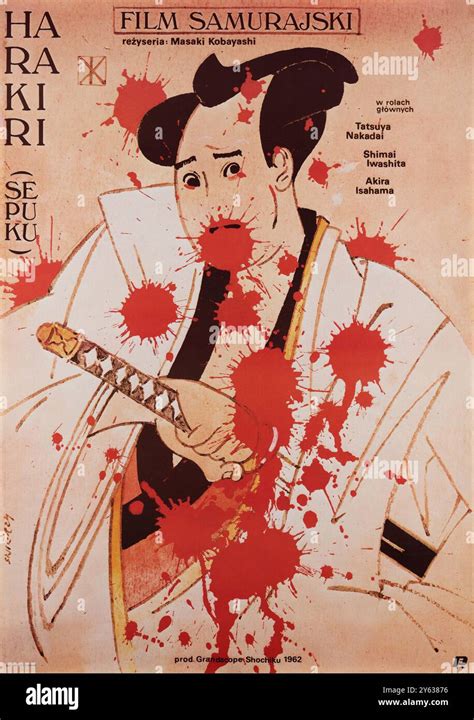Harakiri

Description:
Harakiri (1962) is a stark, uncompromising jidaigeki by Masaki Kobayashi that anatomizes feudal hypocrisy and the samurai code. Hanshiro Tsugumo, a ronin, arrives at the Iyi clan compound to demand a dignified death by seppuku, only to trigger a sequence of revelatory stories that expose the brutality behind ceremonial honor. The film’s austere composition, masterful pacing, and moral confrontation critique power, ritual, and blind loyalty, making it a devastating indictment of feudal-era justice.Keywords:
Edo Period, Drama, Historical Drama, Jidaigeki, Samurai, Anti Feudal CritiqueWhy is Harakiri so good?
"Harakiri," directed by Masaki Kobayashi, is highly regarded for its profound exploration of honor, sacrifice, and the samurai code. The film's narrative structure, featuring flashbacks and a gripping storyline, effectively critiques the rigid societal norms of feudal Japan. Its stunning cinematography and powerful performances, particularly by Tatsuya Nakadai, enhance the emotional depth. The film's philosophical themes and moral dilemmas resonate with audiences, making it a timeless classic that questions the true meaning of honor and loyalty.
What is the message of Harakiri?
"Harakiri," directed by Masaki Kobayashi, conveys a profound message about the hypocrisy of the samurai code and the moral dilemmas of honor and duty. It critiques the rigid adherence to tradition and the societal pressures that compel individuals to sacrifice their lives for superficial notions of honor. Through the story of Hanshiro Tsugumo, who confronts the samurai hierarchy, the film explores themes of sacrifice, the value of life, and the consequences of blind loyalty. Ultimately, it calls for introspection on the true meaning of honor.
What is the movie Harakiri about?
"Harakiri" is a 1962 Japanese film directed by Masaki Kobayashi. Set in the Edo period, it follows a ronin named Hanshirō Tsugumo who seeks to commit ritual suicide (harakiri) in the courtyard of a samurai clan. As he prepares for his death, he reveals a tragic backstory involving another ronin, which exposes the hypocrisy and moral decay within the samurai code. The film critiques the rigid honor system and explores themes of dignity, sacrifice, and the consequences of societal expectations. It's renowned for its powerful storytelling and cinematography.
Is Harakiri a remake of another film?
Yes, "Harakiri" (originally titled "Seppuku") is a 1962 Japanese film directed by Masaki Kobayashi. It is not a direct remake but is inspired by the story of the 1954 film "Harakiri," which was based on a short story by Yasuhiko Takiguchi. While both films explore themes of honor and the samurai code, Kobayashi's version is more critically acclaimed for its anti-war message and social commentary. "Harakiri" has also influenced later works and has been recognized as a classic in Japanese cinema.
Explore More Categories:
Sharks Contemporary Landmines Vampires Recovery Intrigue Hindi Language Film Concert Film Fish Out Of Water Female Resilience Wealth Disparity Nature Versus Nurture Bollywood Secrecy Television Privilege Bioluminescence Monsters Documentary Exploration Marriage Innocence Found Footage Masculinity Cosmic Hypnosis